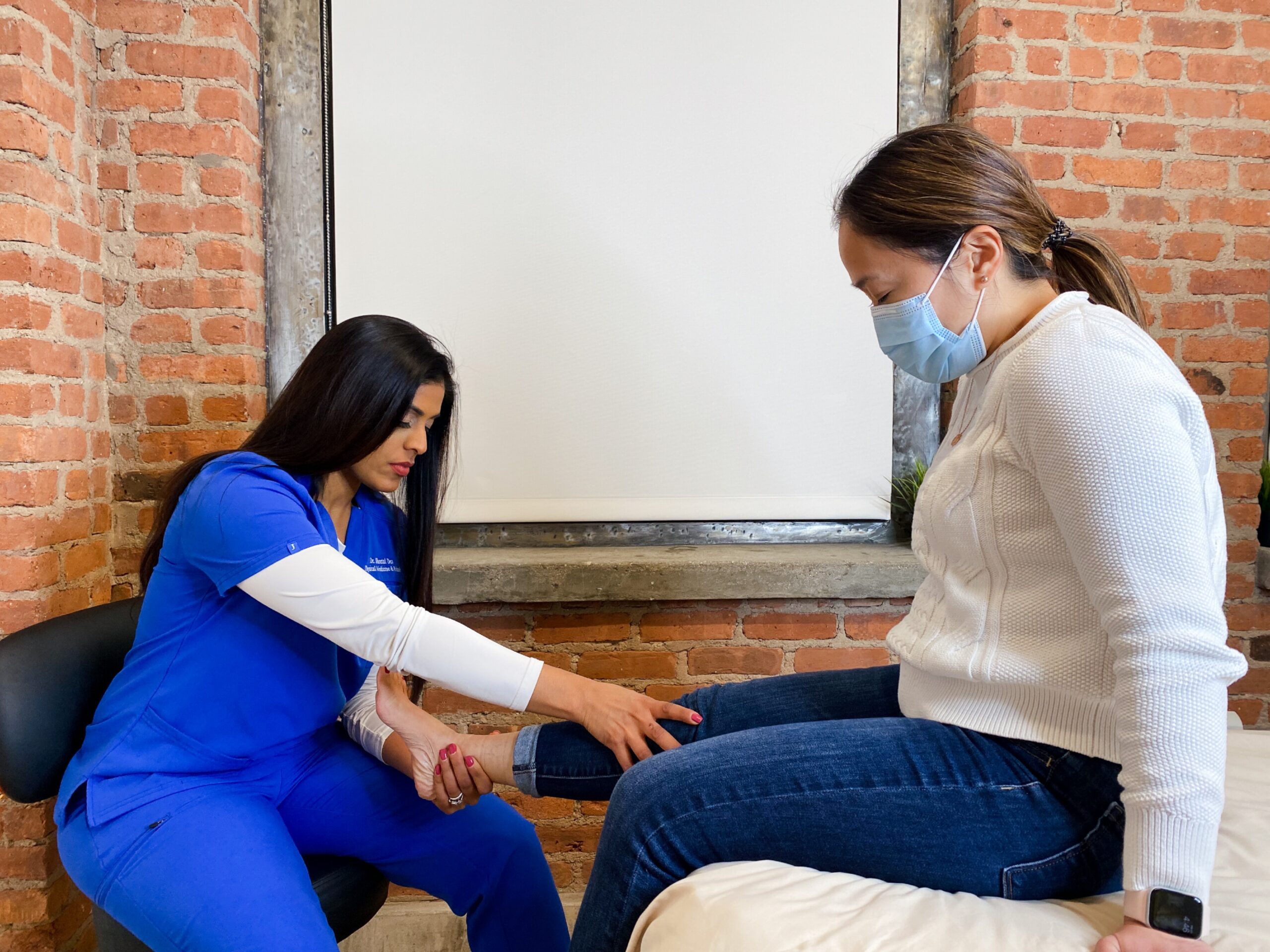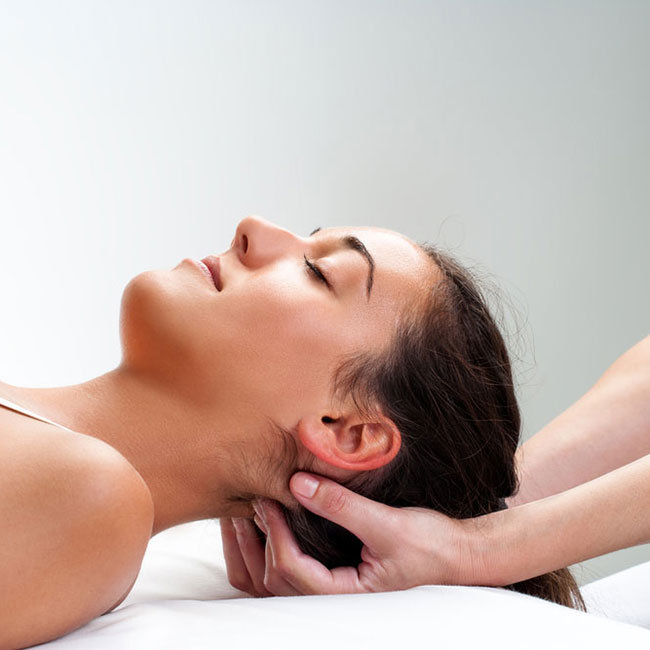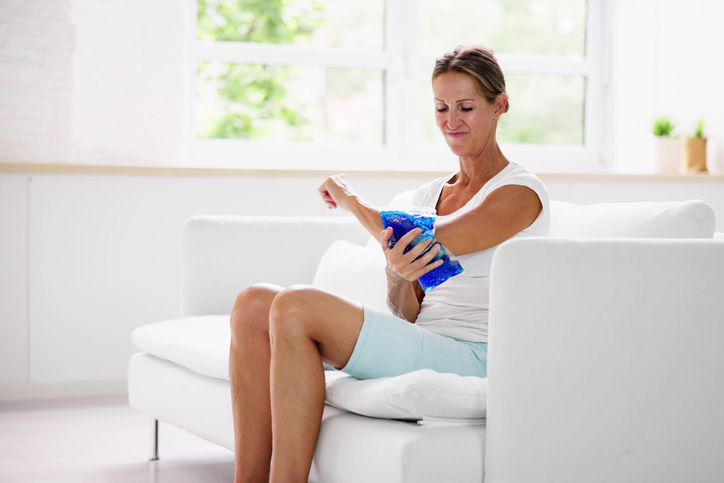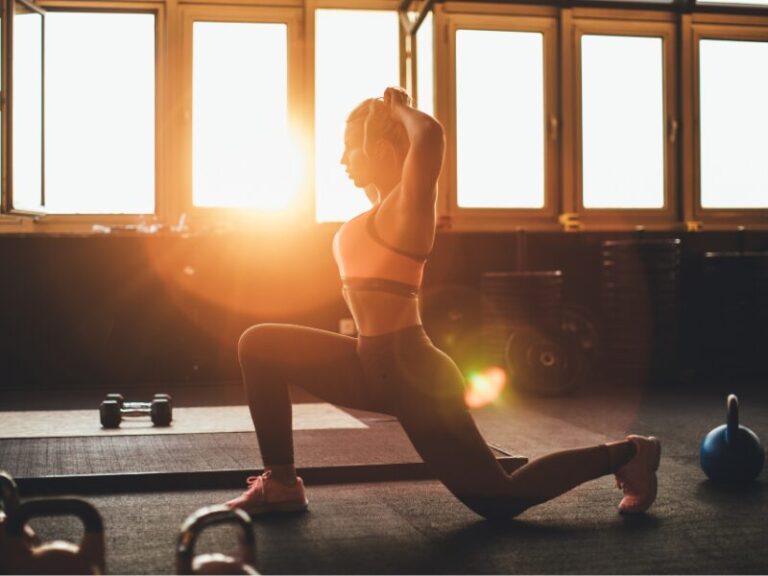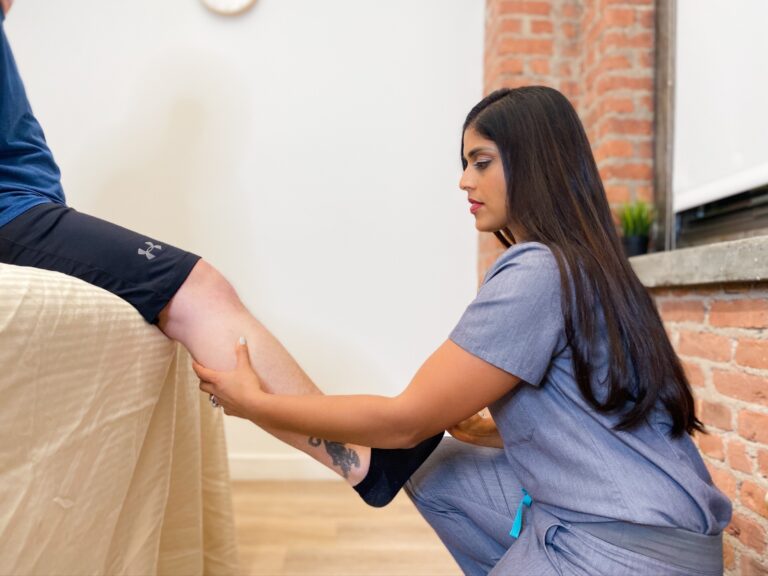By Dr. Sheetal Deo, specializing in Physical Medicine & Rehabilitation
Running, a popular form of exercise and recreation, offers numerous health benefits. However, it also exposes athletes to specific injuries due to its repetitive nature. Let’s delve into the five most common running injuries, backed by exercise physiology and Sports Medicine guidelines. We will also share how our expertise in Physical Medicine and Rehabilitation can help you recover and return to the roads and trails stronger and safer.
1. Patellofemoral Pain Syndrome (Runner’s Knee)
- The Injury: Patellofemoral Pain Syndrome, commonly known as Runner’s Knee, is characterized by pain around the kneecap. A study in the Journal of Orthopaedic & Sports Physical Therapy (JOSPT) found that this condition accounts for nearly 17% of all running injuries.
- Our Approach: We use a combination of strengthening exercises, orthotic intervention, and patient education. A 2020 study in Medicine & Science in Sports & Exercise highlighted the effectiveness of quadriceps strengthening in reducing knee pain.
2. Achilles Tendinitis
- The Injury: This injury involves inflammation of the Achilles tendon, and is typically characterized by pain in the back of the ankle joint. According to the American Academy of Orthopaedic Surgeons, Achilles tendinitis is particularly prevalent among runners who have suddenly increased the intensity or duration of their runs.
- Our Approach: Our clinic emphasizes eccentric strengthening exercises, a method supported by research in the Scandinavian Journal of Medicine & Science in Sports. We also focus on biomechanical assessments to prevent recurrence.
3. Plantar Fasciitis
- The Injury: Plantar Fasciitis causes pain in the bottom of the foot, particularly near the heel. The American Journal of Sports Medicine reports that over 10% of runners will experience plantar fasciitis in their lifetime.
- Our Approach: We undergo a full lower extremity analysis of the patient’s gait and correct any signs of weakness and instability. Addressing muscle tension with manual therapy, such as Osteopathic Manipulation is also very beneficial. We then utilize a holistic treatment plan includes stretching and strengthening exercises tailored to each patient. Arming our patients with a robust home exercise and stretching regimen is also pivotal.
4. Iliotibial Band Syndrome (ITBS)
- The Injury: ITBS leads to pain on the outside of the knee, and sometimes, hip. The British Journal of Sports Medicine found that it represents up to 12% of all running-related injuries.
- Our Approach: We adopt a multifaceted treatment strategy, including manual therapy and targeted exercises, as recommended by experts in the Clinical Journal of Sport Medicine. This approach helps in reducing inflammation and improving flexibility.
5. Stress Fractures
- The Injury: Stress fractures are tiny cracks in a bone caused by repetitive force. The American Family Physician journal notes that runners are at a high risk for stress fractures, particularly in the feet and shins.
- Our Approach: Our protocol involves rest and a gradual return to activity. We also assess and improve running mechanics, as per guidelines from the American College of Sports Medicine, to prevent future injuries.
Why Choose Us?
At Sheetal Deo Medical P.C., we blend cutting-edge research with personalized care. Our multidisciplinary team, led by an esteemed Osteopathic Physician certifed in Physical Medicine and Rehabilitation, is dedicated to helping runners overcome injuries and achieve their peak performance. We understand the runner’s mindset and the intricacies of running mechanics, setting us apart in our field.
Our approach is not just about healing injuries; it’s about preventing them. We provide comprehensive assessments, tailored exercise programs, and continuous support to keep you running healthy and strong.
Ready to Get Back on Track?
Whether you’re a seasoned marathoner or a weekend jogger, Sheetal Deo Medical P.C. is here to support your journey. Contact us today to schedule a consultation and take the first step towards pain-free running.
This blog post is intended for informational purposes only and should not be considered medical advice. Please consult with a healthcare professional for personalized medical advice.
Contact Information
For more information or to schedule a consultation, please contact Sheetal Deo Medical P.C. at 212-596-4360 or www.DrSheetalSDeo.com
References
- Journal of Orthopaedic & Sports Physical Therapy
- Medicine & Science in Sports & Exercise
- American Academy of Orthopaedic Surgeons
- Scandinavian Journal of Medicine & Science in Sports
- American Journal of Sports Medicine
- Journal of Foot and Ankle Research
- British Journal of Sports Medicine
- Clinical Journal of Sport Medicine
- American Family Physician
- American College of Sports Medicine

